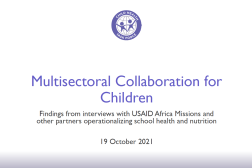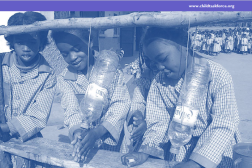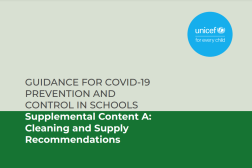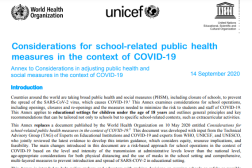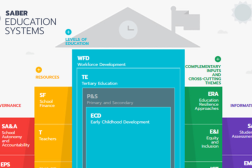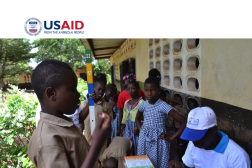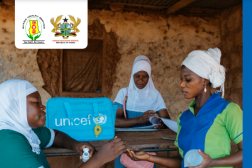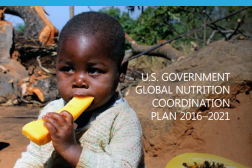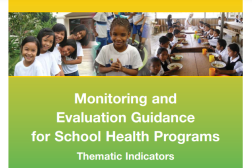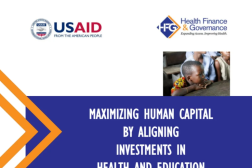Welcome to the Child Health Task Force Resource Library. This database hosts a range of documents from agencies and organizations working on child health programming. When using the search function, please be as specific as possible. More specific search language will return the most appropriate results. Resources are available for download for further reading and can be sent via email or other social media platforms for ease of sharing.
If you have resources related to child health programming that you would like to share through the Child Health Task Force, please reach out through our Contact Us page.
We recommend searching for an author (by name) if you are looking for a specific report. You may also use the filters to refine your search by country, language, etc.
Report | English | 2021
State of School Feeding Worldwide 2020
World Food Programme (WFP) report launched in February 2021. The report finds that between 2013 and 2020, the number of children receiving school meals grew by 9 percent globally and 36 percent in low-income countries, as governments expanded their programmes and made school feeding the world’s most extensive social safety net. The report also estimates that school meals programmes yield returns of up to US$ 9 for every US$ 1 invested.
Journal Article | English | 2021
Considerations for Monitoring School Health and Nutrition Programs
Community case study published in Frontiers of Public Health on July 16, 2021.
Guide | English | 2021
Sustaining Adolescent Health Service Delivery During Prolonged School Closures: Considerations in Light of COVID-19
Factsheet developed by the Global Financing Facility providing an overview of approaches to sustain the delivery of school health and nutrition services described above and targeted to adolescents in periods of school closure, while presenting considerations for the resumption of school-based service delivery upon reopening.
English | 2021
Blog: Getting School Health Right in Low- and Middle-Income Countries
Blog post by Luke Shors and Linda Schultz published in Think Global Health on September 16, 2021.
Presentation | English | 2021
Multisectoral Collaboration for School Health Presentation (Schultz & Shors) - October 19, 2021
Presentation made during the webinar hosted by the Re-imagining the Package of Care for Children subgroup on October 19, 2021 to share findings from interviews with USAID Africa Missions and other partners operationalizing school health and nutrition. The presenters were Luke Shors and Linda Schultz, consultants advising the Child Health Task Force on this work. Read the full report here.
Multisectoral Collaboration for School Health Presentation (Schultz & Shors) - October 19, 20212.98 MBReport | English | Burkina Faso, Democratic Republic of the Congo, Ethiopia, Ghana, Kenya, Liberia, Malawi, Mali, Mozambique, Niger, Nigeria, Senegal, South Sudan, Tanzania, Uganda, Zambia | 2021
Report: Operationalizing Health & Education Coordination
This report commissioned by the Child Health Task Force presents recommendations for operationalizing school health and education that surfaced through interviews with USAID Africa Bureau Missions. It addresses the question: How do countries, practitioners, and development partners bridge the gap between knowing 'what to do' and 'how to do it' when it comes to school health?
Report: Operationalizing Health & Education Coordination3.58 MBGuide | English | 2020
Guidance for COVID-19 prevention and control in schools
UNICEF, the World Health Organization and the International Federation of Red Cross and Red Crescent Societies published Guidance for COVID-19 Prevention and Control in Schools, with a series of supplemental content with practical guidance across domains ranging from implementation to the development of child friendly materials. These resources are also available in French, Portuguese, and Spanish.
Guide | English | 2020
Considerations for School-Related Public Health Measures in the Context of COVID-19
WHO, UNICEF and UNESCO have issued updated advice for policymakers and educators on running schools as safe as possible during the COVID-19 pandemic, looking at risk-based approaches for school operations, based on the level and intensity of transmission rates at lower schooling levels; age-appropriate considerations for measures such as physical distancing and masks in schools; and other measures to mitigate against COVID-19 in schools.
Report | English | 2020
World Bank Systems Approach for Better Education Results (SABER)
The Systems Approach for Better Education Results (SABER), launched by the World Bank in 2011, is an initiative to produce comparative data and knowledge on education policies and institutions, with the aim of helping countries systematically strengthen their education systems and the ultimate goal of promoting Learning for All.
Guide | English | 2020
WHO/UNESCO Health Promoting Schools
Building from WHO's Global School Health Initiative, launched in 1995, WHO and UNESCO developed global standards and indicators as well as implementation guidance for assessing health promoting schools: environments that constantly strengthen their capacities as healthy settings for living, learning and working.
Report | English | 2020
Human Capital Investments: The Case for Education and Health in Sub-Saharan Africa
This USAID white paper, published in 2020, considers opportunities to reach school-age children and adolescents in Africa given the young demographic profile of the region.
Tool | English | 2020
Joint WFP and UNICEF Multisectoral Checklist for School Reopening and School based Nutrition in the context of COVID-19
The World Food Programme and UNICEF Eastern and Southern Africa Regional Offices jointly published a non-exhaustive list of recommended multi-sectoral actions to consider as part of the short and longer-term planning for and implementation of school reopening and school-based nutrition in the context of COVID-19.
Journal Article | English | 2020
Preventive malaria treatment among school-aged children in sub-Saharan Africa: a systematic review and meta-analyses
Journal article published in the Lancet on December 1, 2020.
Presentation | English | 2020
Advantage of Integrated Models in COVID-19 Response (Healthy Learners, 2020) - Re-imagining Subgroup Webinar Presentation
Presentation from the webinar "The Advantage of Integrated Models in the Response to COVID-19: A practical example from Zambia" hosted by Re-imagining the Package of Care Subgroup on September 29, 2020. The webinar featured Healthy Learners from Zambia, presenting lessons learned from their school-based community health program and its impact during the COVID-19 pandemic and re-opening of schools. Other speakers included Pascale Wagner, PCI Guatemala Country Director, and Oya Afsar, Health Specialist UNICEF NY/HQ.
Advantage of Integrated Models in COVID-19 Response (Healthy Learners, 2020) - Re-imagining Subgroup Webinar Presentation6.08 MBEnglish | Kenya | 2019
Pupil Absenteeism, Measurement, and Menstruation: Evidence from Western Kenya
Working paper on evidence from western Kenya on school health interventions for adolescents and their impacts on attendance published by Columbia's Center for Development Economics and Policy in March 2019.
Report | English | Ghana | 2019
The Girls' Iron Folate Tablet Supplementation (GIFTS) Ghana Project Evaluation
The GIFTS Program is designed to improve the nutritional status of menstruating girls/women aged 10-19 years in Ghana. The program, which is supported through a collaboration with the Ghana office of the United Nations Children’s Fund (UNICEF), Ghana Ministries of Health and Education, Emory University Global Health Institute and The U.S Centers for Disease Control and Prevention, provides free weekly IFA supplementation delivered to in-school and out-of-school adolescent girls as well as health and nutrition education sessions for both boys and girls.
Action Plan | English | United States | 2016
U.S. GOVERNMENT GLOBAL NUTRITION COORDINATION PLAN 2016–2021
The U.S. Government Global Nutrition Coordination Plan 2016-2021 identifies concrete opportunities for greater interagency communication and collaboration on human nutrition research and programming, facilitating a stronger whole of-government approach to global nutrition.
Guide | English | 2014
FRESH Monitoring and Evaluation Guidance for School Health Programs
The FRESH framework's Monitoring and Evaluation Guidance for School Health Programs provides a menu of thematic indicators to support the selection of M&E Core Indicators for school health projects.
Event Materials | English | 2018
The FRESH School Health and Nutrition (SHN) Webinar Series
This school health and nutrition monthly webinar series was organized by Save the Children to discuss furthering the aims and objectives of UNESCO’s Focusing Resources on Effective School Health (FRESH) movement.
Report | English | 2018
Maximizing Human Capital by Aligning Investments in Health and Education
This USAID white paper, published in 2018, takes a global perspective in its analysis. It introduces human capital, its relevance to the Journey to Self-Reliance, and draws upon the Disease Control Priorities, Third Edition to provide examples of human capital interventions across the first two decades of life, spanning from early childhood to job entry.

